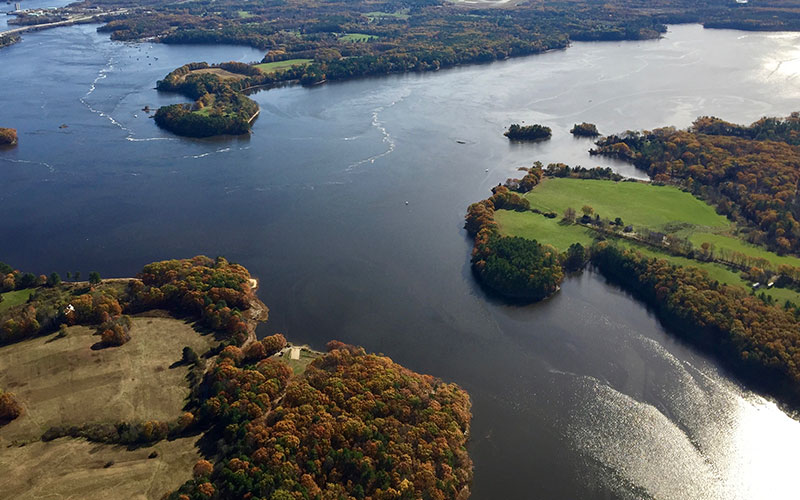
February 15, 2023 (CONCORD, NH) – Conservation Law Foundation (CLF) has filed a formal petition under the Clean Water Act urging the Environmental Protection Agency (EPA) to regulate stormwater pollution from large commercial, industrial, and institutional properties surrounding Great Bay. Stormwater runoff is a significant source of harmful nitrogen pollution, one of the primary pollutants contributing to the poor health of the Great Bay estuary.
“The rivers and streams flowing into Great Bay are being inundated with polluted stormwater every time it rains,” said Melissa Paly, Great Bay Piscataqua Waterkeeper at CLF. “The nitrogen in this stormwater runoff is harming the waterways that make New Hampshire’s Seacoast such a special place to live and visit, and it cannot be allowed to continue. Many of our communities have made great strides in reducing pollution from wastewater, now it’s time to step up and reduce pollution in stormwater.”
CLF’s petition requests that the EPA use its powers under the Clean Water Act – known as Residual Designation Authority – to regulate stormwater runoff from large commercial, industrial, and institutional properties in the Great Bay watershed. Runoff from large parking lots, big box stores, and strip malls is not currently regulated by EPA. However, these properties contribute significant runoff to nearby wetlands, streams, and rivers. That runoff contains nitrogen and other pollutants that are degrading the health of Great Bay, Little Bay, the Piscataqua River, and other parts of the Great Bay estuary.
In recent years, many cities and towns in the New Hampshire Seacoast region have invested in upgrades to their wastewater treatment plants, substantially reducing the amount of nitrogen pollution discharged into our rivers and bays. But even with these improvements, science shows that the Great Bay estuary will not be restored to a healthy condition until stormwater pollution is addressed.
You can review a PDF map of the affected area.
CLF experts are available for further comment.
###
